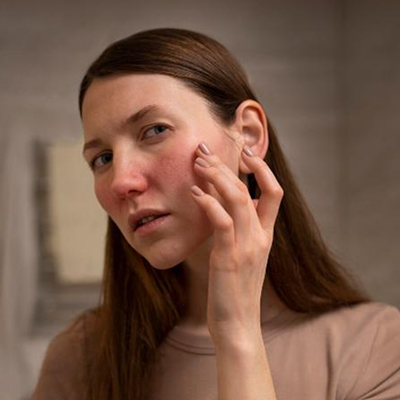With the advancement of skincare routines becoming a norm in personal care, it is easy to get sidetracked by what is right or what’s popular in achieving healthy glowing skin. Enough over-the-counter products are designed to fix common skin issues such as acne, dryness, or redness. However, treatments are often ineffective for persistent or more complex skin concerns. The point is, knowing when you need a professional; this usually becomes the moment your skin asks for the intervention of a dermatologist. A dermatologist is a doctor specializing in skin diseases and conditions. They are crucial for one’s care when a problem seems beyond standard skincare solutions.
As it relates to skincare, several instances may indicate the need for a skin doctor’s advice. Some of these include chronic acne, dry and itchy skin, unclear cases of rashes, or reactions toward materials that the individual may encounter. If a person has visible characteristics of rosacea, failing wounds, or if she undergoes regular skin exams for potential signs of cancer, these are some circumstances when consulting a dermatologist may be necessary. To achieve proper skin health, there needs to be an understanding of what would require a skin doctor.
Acne Problems
Acne is one of the most common skin problems in the world. For many people, it is something manageable through products, such as cleansers, topical treatments, or spot treatments. However, for some, acne becomes an issue that cannot be easily managed with OTC products. This is especially the case when the acne is severe, recurrent, or leads to cysts and scarring.

According to Dr Priyanka Aggarwal, the best dermatologist, sometimes acne requires professional care when it becomes cystic and breaks out or causes severe scars. If nothing seems to be working that you can get over-the-counter, such as benzoyl peroxide or salicylic acid topical or topical retinoids, it is time to talk to a skin doctor. They can prescribe stronger topical treatments and oral medications, like antibiotics and retinoids, which reduce inflammation, kill bacteria, and prevent future breakouts.
A skin doctor would analyze and tell you whether it is a result of the underlying reasons of hormonal imbalance, stress, or a specific kind of medicine. They will make a proper treatment program suited to your skin’s needs. Early treatment may keep permanent scars away and very strong flare-ups.
Dryness or Itchy Skin
Itchiness, and dry, flaky skin is unbearable and irritating. Where basic moisturizers help those experiencing only mild dryness, if you experience persistent dryness or itchiness that fails to respond to topical hydration, this may be an underlying condition, such as eczema, psoriasis, or dermatitis. Consult a dermatologist once you feel your skin tugging tight, cracked, inflamed, or presenting with itchy rashes.
Conditions such as atopic dermatitis, where the disease is referred to as eczema and is accompanied by scaling of patches as a result of psoriasis, require special treatment for the inflammation to start reducing, flare-ups are kept in check, and moisture levels are restored into the skin. If this is not treated by professionals then the condition worsens and also has much to do with assessing the quality of life.
A skin doctor would perform a thorough examination and might even run tests to determine the exact cause of dryness on your skin. In most cases, they will recommend specific creams or ointments for moisturizing, medicated shampoos, or oral treatments that may control the symptoms and help the skin’s natural barrier get restored.
Rashes or Allergic Reactions
The moment you acquire a rash, hives, or swelling from a new skincare product after having contact with an allergen, schedule a visit to your dermatologist. This may be the after-effect of fragrances, preservatives, or dyes in most skincare products. Sometimes, this reaction may be severe: it is accompanied by itching, redness, swelling, and breathing difficulties.

A skin doctor could help determine the cause behind the allergic reaction through a patch test, which then guides how to care for it or avoid further reactions. If they choose, they can prescribe topical steroids or antihistamines to reduce inflammation and prevent more irritation.
Apart from cosmetics, other environmental causes include climatic variations, exposure to certain plant materials, and even allergic reactions to foods. In these cases, a dermatologist can guide you in avoiding allergens, how to safely choose your skincare options, and what emergency care should be given if such severe reactions happen.
Redness Symptoms
If you find that your face is red often—more so on the nose, cheeks, and chin but possibly other places as well—that is an early warning sign of rosacea, which can be a chronic skin condition characterized by the presence of redness and small, visible blood vessels that can cause inflammation and lead to bumps and/or pimples that have qualities of acne.
Rosacea typically flares up after consumption of spicy foods, drinking alcohol, or experiencing stress or extreme weather conditions. In case you have recurring redness or burning, it is essential to see a skin doctor to determine the cause. Early treatment will help prevent the disease from becoming worse and also decrease the frequency of flare-ups.
Usually start with topical treatments or severe oral antibiotics based on the severity of symptoms and may advise you about lifestyle adjustments and triggers to avoid concerning your rosacea condition.
Wounds That Won’t Heal
Wounds, cuts, or sores can take more than a few weeks to heal and can be an indication of a deeper health issue, such as diabetes, infection, or poor circulation. Such wounds can easily become infected or scarred and may not heal without proper medical intervention.
A dermatologist’s advice is essential when you think that the wound is not healing as expected. This is because they could assess the wound and ensure that there is no chance of fungal or bacterial infections, thus forming an appropriate plan of treatment.
Many chronic non-healing wounds are symptomatic of underlying diseases affecting health. These include autoimmune diseases, vascular disease conditions, etc. A dermatologist may be able to help with such conditions through special dressing treatments, drugs, and other methods.
Regular Skin Check-Ups
Even if you are not suffering from any skin condition at present, visit a dermatologist regularly. The most common cancerous problem is skin cancer. Its early detection will also bring chances of successful treatment as well as less expensive and invasive procedures to cure.

Suspicious moles, spots, or changes in an existing skin lesion will be investigated by a skin doctor when they examine your skin. If it looks unusual, or asymmetric, or if borders seem to be uneven, this may be biopsied for a closer look, and it is especially critical where the risk factor is increased through family history or UV radiation from the sun.
Those who have fair skin, who have had sunburns, or who spend much time in the sun should get regular skin checks. The American Academy of Dermatology urges everyone to examine themselves regularly and every year to get a professional skin exam. Whenever new moles or growths appear, or in case a change in a pre-existing mole is noted, one should see a dermatologist as soon as possible.
Conclusion:
Skincare is much more than just a routine followed on a day-to-day basis but more about knowing at what points it needs medical help or some sort of handling to eradicate severe problems affecting it. From dealing with widespread complaints like acne, dryness, and redness, to having the right regime at your doorstep, that skincare regime for the very basic complaints would solve. Any concern that shows persistent effects despite this consistent personal routine would need some other intervention. Treatment from a dermatologist is not limited to skin conditions, as it can also help in the prevention of further complications in the form of scarring or even worse health-related issues. Early intervention leads to better outcomes, while healthy, glowing skin remains the best goal.
If you have recurrent acne, persistent dryness or itchiness, inexplicable rashes, redness that might be rosacea, wounds that don’t heal, or any other changes in your skin that may mean it’s a sign of skin cancer. With a dermatologist, you can be sure your skin will get the right care to remain healthy without bearing the weight of worse skin conditions.
Dr Priyanka Aggarwal, being the best dermatologist in Kolkata, can give you professional diagnoses, prescription treatments, and personalized skincare advice in case you need it to sustain your skin health despite getting busy in life. An investment for the long-run health and well-being of your skin. Dr Priyanka Aggarwal can always help you out, giving you an effective routine for this busy lifestyle of yours.
Read more: How to Identify and Treat the Most Common Skin Problems
FAQ
How often should I visit a dermatologist?
You need an annual skin check for the visit to the dermatologist. Except for this, when there are some specific matters of concern or a cancerous history or a skin disease; you can visit any other time.
Can dermatologists treat hair problems?
Yes. A dermatologist can treat a lot of hair problems, such as hair loss and dandruff. Scalp disorders and other conditions affecting the health of the hair can also be treated.
Which dermatologist is best for skin problems?
Well, for all the awful symptoms you’re contending with, a dermatologist who’s been properly trained in your specific condition has good recommendations, and is a board-certified dermatologist is the best doctor to visit. Maybe get some recommendations or research reviews to find one that’s trustworthy.





